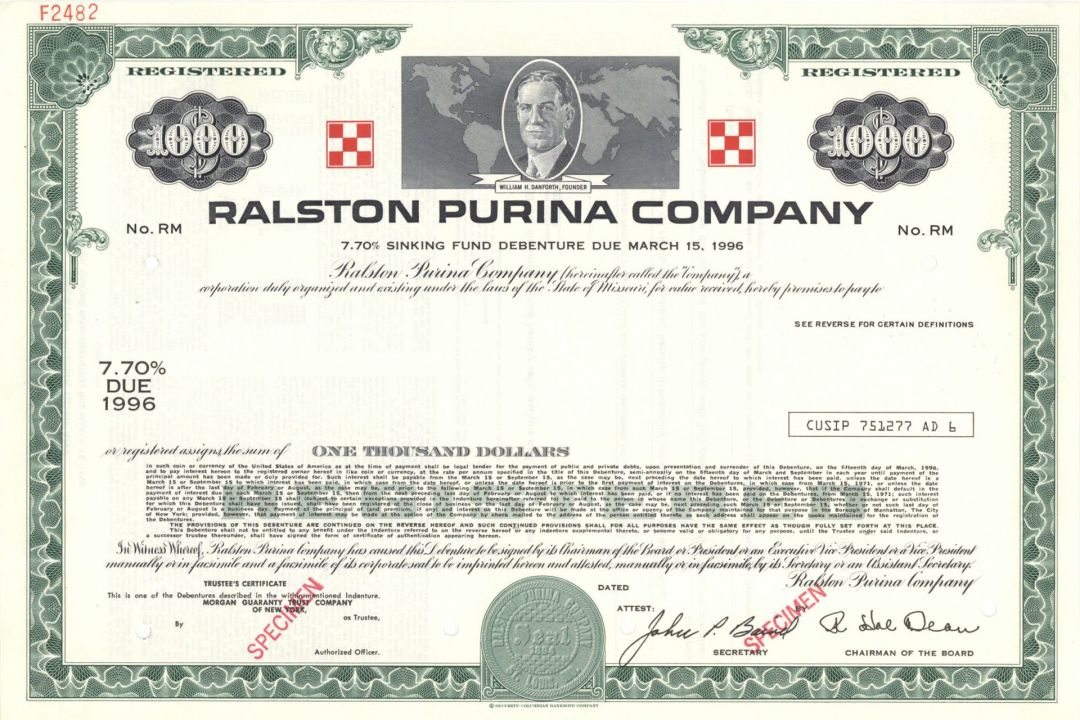Ralston Purina Co. - $1,000 Specimen Bond
Inv# SE3776A Specimen BondNew York
$1,000 7.70% Specimen Bond printed by Security-Columbian Banknote Company. Ralston Purina Company was an American conglomerate based in St. Louis, Missouri, with significant investments in animal feed, food, pet food, consumer products, and entertainment. On December 12, 2001, it merged with the Friskies division of Swiss food giant Nestlé to create Nestlé Purina PetCare Company. Ralston Purina, originally known as Ralston-Purina, has its origins dating back to 1894 when founder William H. Danforth established the animal feed company Purina Mills. Danforth partnered with George Robinson, while William Andrews entered the farm animal feeding industry by founding the Robinson-Danforth Commission Company.
The primary brand for each type of animal was commonly referred to as "Chow"; thus, there were products like "Purina Horse Chow", "Purina Dog Chow", "Purina Cat Chow", "Purina Rabbit Chow", "Purina Pig Chow", and "Purina Monkey Chow". Subsequently, the company expanded into cereal production, which was endorsed by Webster Edgerly, the founder of Ralstonism, to promote Ralston breakfast cereals. At that time, Edgerly was advocating for the consumption of whole-grain cereal. These cereals achieved such success that in 1902, the company's name was changed to Ralston-Purina Company. In 1986, Ralston Purina divested Purina Mills, its US animal feed division, to British Petroleum. Purina Mills is currently owned by Land O'Lakes. In 1994, the Ralston "human food" operations of Ralston Purina Company were separated into a new entity called Ralcorp Holdings. In 1998, Ralston Purina spun off its international animal feed operations as Agribrands, which was acquired by Cargill in 2001. The animal feed divisions continue to utilize the Purina and Chow brands, which are licensed for use in the US and internationally by Purina Mills and Cargill, respectively.
Stock and Bond Specimens are made and usually retained by a printer as a record of the contract with a client, generally with manuscript contract notes such as the quantity printed. Specimens are sometimes produced for use by the printing company's sales team as examples of the firms products. These are usually marked "Specimen" and have no serial numbers.












Ebay ID: labarre_galleries